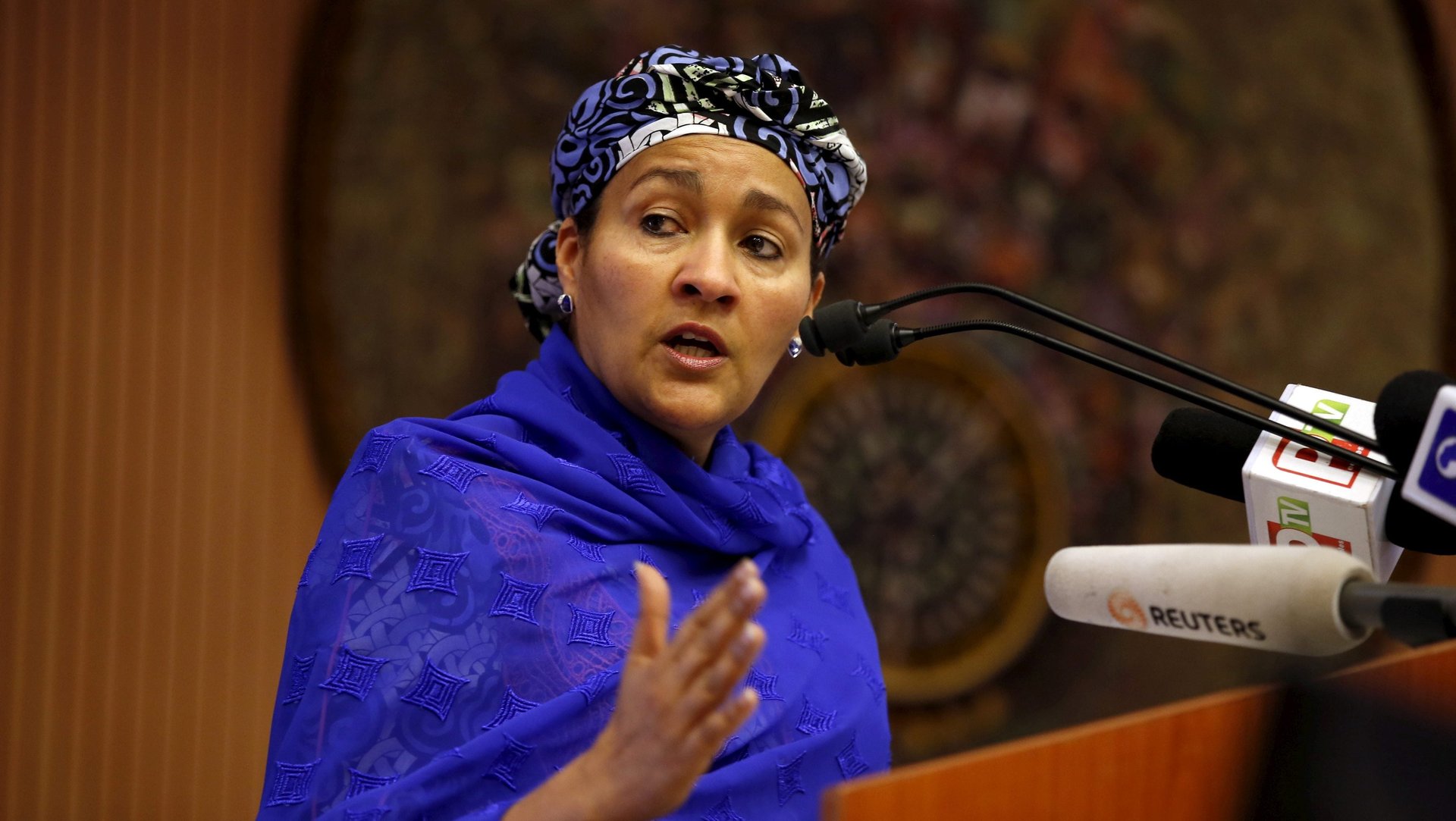Nigeria’s government is losing its biggest champion of climate change awareness
Since taking office in May 2015, Nigeria’s president Buhari has come under criticism not just for his handling economy but also for a seemingly under-performing cabinet. Buhari’s cabinet, which took six months to set up, was initially criticized for being packed with familiar names in Nigerian politics. But one of those whose selection, and subsequent performance in office, has impressed has been Amina Mohammed, the minister of environment, a long-time supporter of climate change awareness and sustainable development.


Since taking office in May 2015, Nigeria’s president Buhari has come under criticism not just for his handling economy but also for a seemingly under-performing cabinet. Buhari’s cabinet, which took six months to set up, was initially criticized for being packed with familiar names in Nigerian politics. But one of those whose selection, and subsequent performance in office, has impressed has been Amina Mohammed, the minister of environment, a long-time supporter of climate change awareness and sustainable development.
But Mohammed is set to leave just 12 months after she joined the cabinet. She’s been appointed as deputy secretary-general of the United Nations (UN) by António Guterres, UN’s new secretary-general. Mohammed had previously served as special adviser to UN secretary-general Ban Ki-Moon. President Buhari described Mohammed’s appointment as “great honor to Nigeria.”
In her year in office, Mohammed has been the forefront of several climate change-related developments. Most notably, Mohammed spearheaded the campaign to launch the clean up of Nigeria’s oil-producing Ogoni region. For decades, the world’s biggest oil firms have operated in region devastating communities and hobbling livelihoods due to large-scale pollution.
After years of being stalled, Mohammed played a crucial role in launching the clean-up program which could take up to 25 years to complete. Mohammed also led Nigeria’s delegation to the United Nations Framework Convention on Climate Change (UNFCCC) in Marrakech, Morocco last month as part of a landmark global climate change deal.
For her part, Mohammed, who has served as minister of environment for a year, describes the appointment as “truly humbling” but says she will “continue to lay strong foundations with various important ongoing initiatives” before resuming her new role in March 2017.
Under Mohammed, Nigeria recently became one of five countries to raise standards for fuel imports from Europe. With a report finding that fuel imported from Europe showed sulphur levels 150 times higher than the permitted European limit of 10 parts per million (ppm), Mohammed pushed to impose stricter standards of 50 ppm for sulphur levels in fuel imports. Long term, Mohammed says the move will improve air quality benefits across Nigerian cities as well as allow Nigeria “set modern vehicle standards.”
During her last weeks in office, Mohammed is expected to facilitate the launch of Nigeria’s Green Bond—a fund to finance a range of projects aimed at achieving a greener economy and reducing emissions.